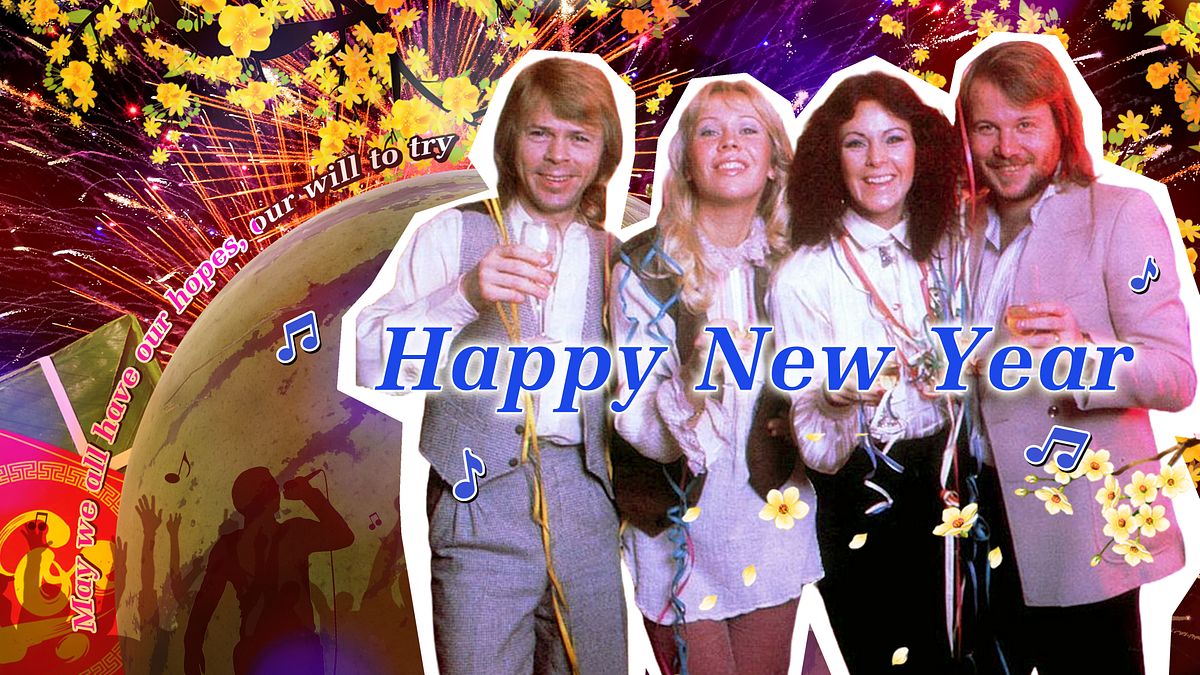Somewhere along the way, an ABBA’s sleeper hit ‘Happy New Year’ has emerged as the go-to musical choice for Vietnamese broadcasters and countdown parties when a new year rings in.
Vietnam’s second national anthem?
Before the first fireworks can even grace the sky, speakers across the city have already reved up to full volume to blast this ubiquitous and unmistakable chorus:
Happy new year!
Happy new year!
May we all have a vision now and then
Of a world where every neighbor is a friend
For decades, these lyrics have etched themselves into Vietnam's collective consciousness as the default soundtrack for bidding farewell to the old year and welcoming the new. Between Gregorian and Lunar new year celebrations, it is almost guaranteed that you will come across ABBA’s ‘Happy New Year’ at least once, be it from a TV commercial or your neighbor’s relentless karaoke setup.
The song stands as a rare musical phenomenon that resonates with multiple generations, from the elderly to the young, and finds its place in various contexts, including wedding stages, English-language classrooms, and even in a year-end celebration video created by doctors at the largest maternity hospital in southern Vietnam. In 2018, the national television broadcaster VTV even released a special music video featuring actors from two hit TV series of that year — Người phán xử and Sống chung với mẹ chồng — enthusiastically lip-syncing to the lyrics. Its level of recognition, arguably, trails only that of the national anthem.

Medical staff at Từ Dũ Maternity Hospital covering ‘Happy New Year.’
Growing up in Vietnam, one might easily mistake the song's ubiquity for a commonplace tradition, as it seems entirely reasonable to play a song named ‘Happy New Year’ to wish for… well, a happy new year. However, in reality, this practice is unique to Vietnam. In English-speaking and Western European countries, the go-to New Year song often defaults to the Scottish hymn ‘Auld Lang Syne.’ Meanwhile, in its home country of Sweden, ‘Happy New Year’ has never climbed to the top of any music charts, even seeming somewhat overshadowed by colossal hits from the same album like ‘Lay All Your Love On Me’ or ‘The Winner Takes It All.’
So, what has turned the song into a national-level cult classic in Vietnam?
From Stockholm, with love
ABBA's special connection with Vietnam traces back to the early 1970s. Almost serendipitously, the band's career closely aligns with a pivotal period in Vietnam's modern history — from the end of the American occupation, the country’s reunification, and the onset of the Đổi Mới era.
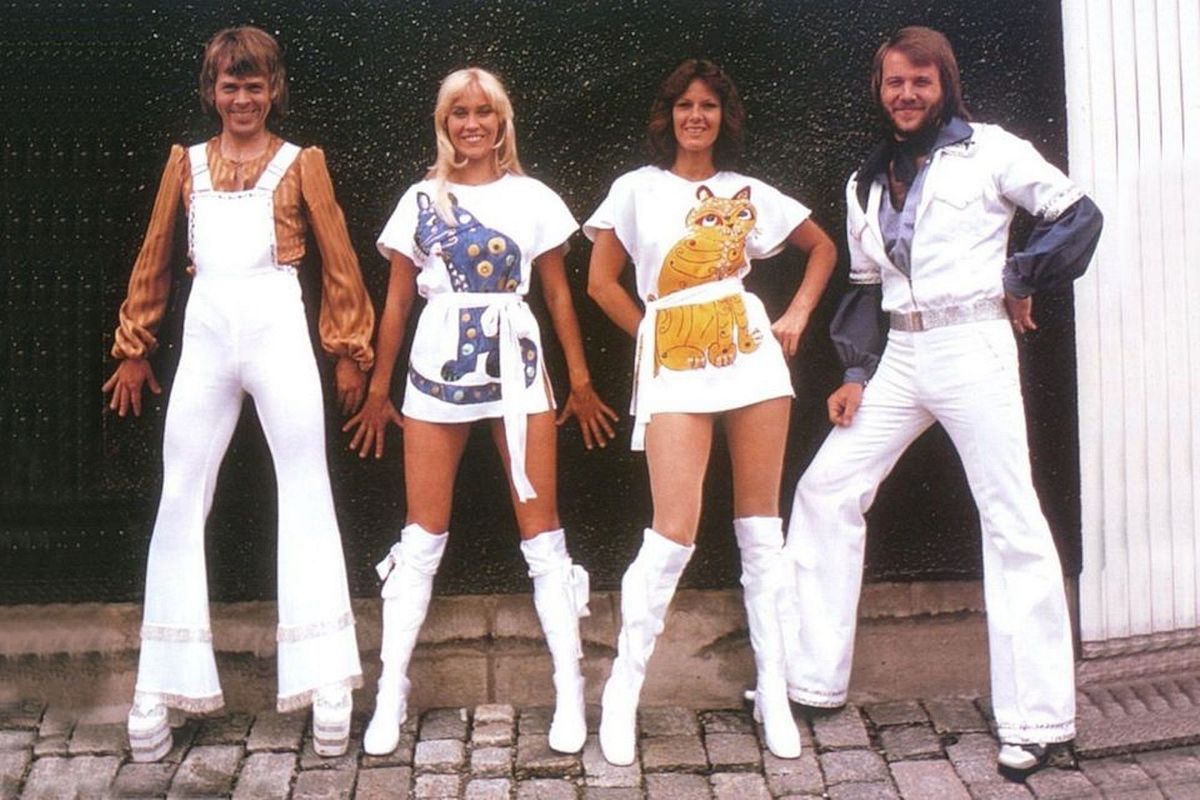
ABBA's fashion and music epitomized the Euro-disco trend, a style adored by Vietnamese of that time for its chic appeal. Photo via Irish Independent.
ABBA was formed in 1972 in Stockholm by two married couples, Agnetha Fältsko and Björn Ulvaeus, along with Benny Andersson and Anni-Frid “Frida” Lyngstad. In 1974, the band became the first Swedish act to win the Eurovision Song Contest with their song ‘Waterloo’ — the recognition from the competition catapulted ABBA to become one of the most successful bands of all time. However, despite reaching the pinnacle of their careers, both couples announced their breakups and the members went their separate ways in 1982.
Meanwhile, from 1975 to 1985, Vietnam was still grappling with the challenges of post-war reconstruction. Isolation and sanctions from the international community not only hampered the nation's economy, but also imposed severe limitations Vietnam's access to the global cultural zeitgeist. Vietnam, during this period, mainly engaged in relationships within the Socialist Bloc, and interactions with the outside world were a rarity, predominantly restricted to diplomatic delegations from the Soviet Union. Also due to stringent cultural censorship, the introduction of foreign music was mostly restricted, and in most cases, outright prohibited.
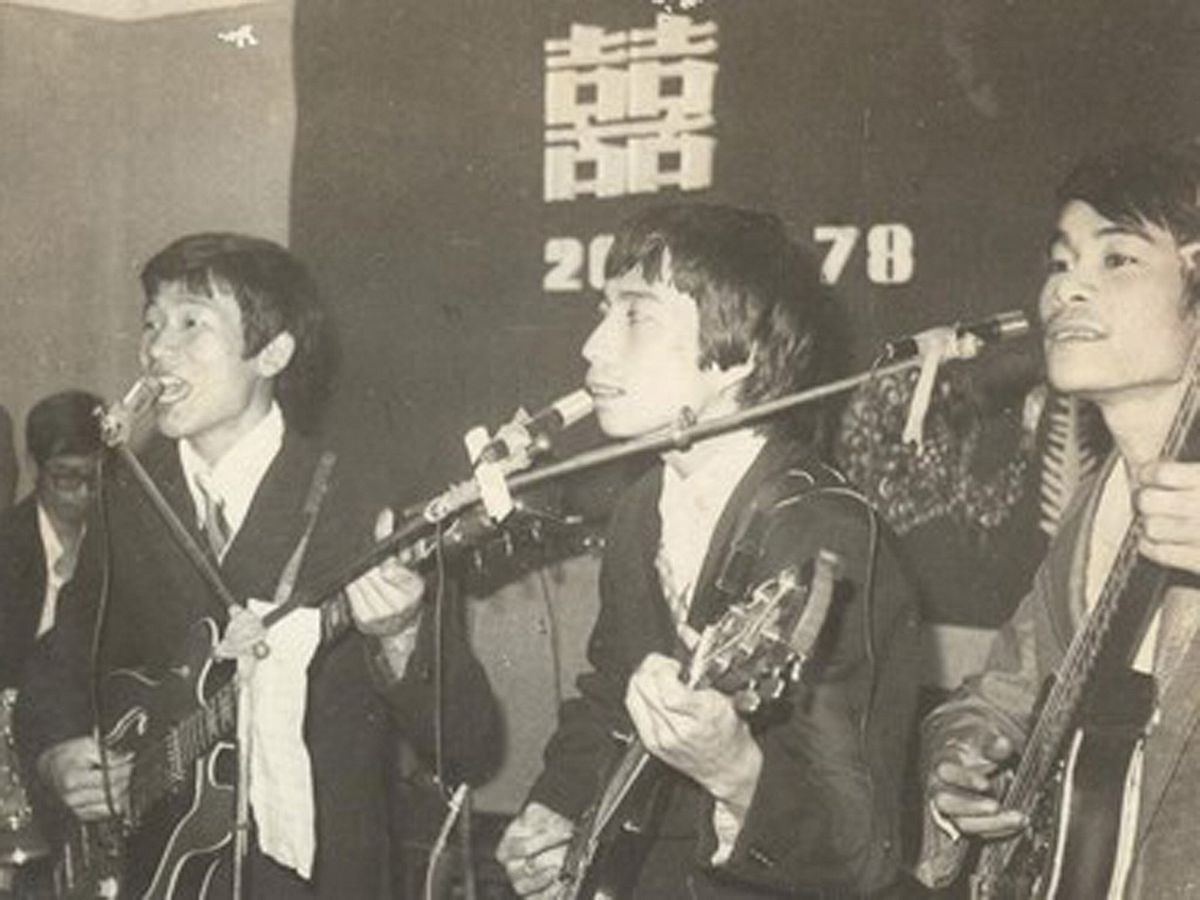
A wedding band from the subsidy era that specialized in covering foreign songs. According to a musician from that time, censorship regulations seemed to ease during wedding occasions. Photo via Tuổi Trẻ.
ABBA’s presence was an anomaly. Not only was their music tolerated, it was also embraced by the local population, even during the toughest years of the subsidy economy. Using smuggled cassette tapes, ABBA's tunes echoed through the capital’s streets, their songs becoming a daily fixture and a staple at celebratory occasions like weddings.
In an interview, the former Swedish ambassador in the late 1980s, Börje Ljunggren, recounted his observations during his tenure: ‘Vietnam was very different then. Dark streets, few eateries, and tall buildings were scarce. The country hadn't yet opened its doors to western values and culture [...] But I noticed that ABBA's music was incredibly popular in Hanoi.”
Trần Thị Kiệm, who was born in 1954, told me about her experiences during this era: “Their four-member group always dressed in white, with bell-bottom pants. Thus, young people loved to grow their hair long and wear bell-bottom pants, because they thought it made them look cool and ‘sick.’”
She noted that the government considered this style too “perverse” and westernized, leading to specific bans against student groups and youth organizations participating in the trend. “Anyone daring to wear them would have their pants ripped off,” she added. Nevertheless, the popularity of ABBA's music among the youth continued to rise with the release of each smash hit. “I particularly liked 'Money Money,' 'Happy New Year,' and 'When I Kissed The Teacher.' Their music was always so captivating and filled me with positive energy.”
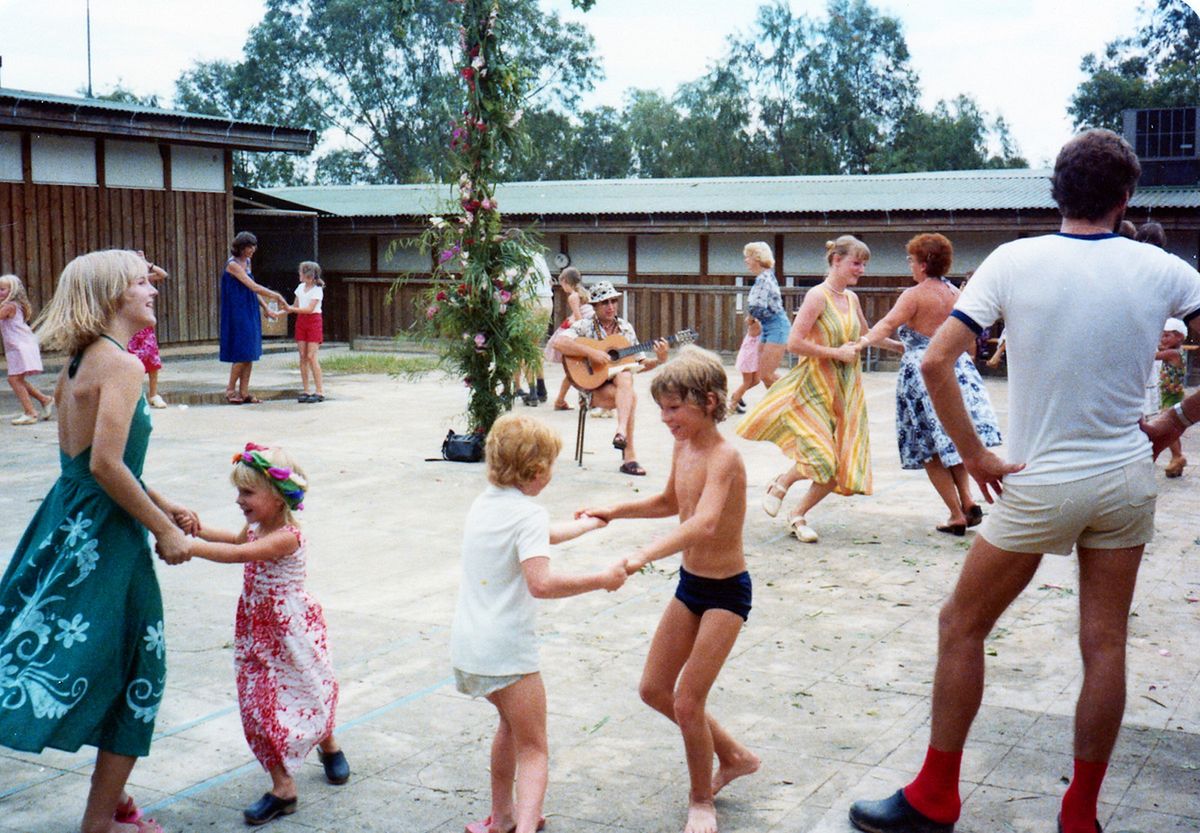
The Swedish Village. Photo via VnExpress.
The government’s leniency when it came to the propagation of ABBA's music did not come out of nowhere. In 1969, Sweden, ABBA's home country, became the first western nation to establish diplomatic relations with Vietnam. Before this, former Swedish Prime Minister Olof Palme himself led an march against the Vietnam War on the streets of Stockholm in 1968. Over 2.7 million people, or one-third of Sweden's population at the time, signed a petition condemning the war and calling for an end to the bombing on innocent civilians.
Throughout the 1970s and 1980s, Sweden emerged as Vietnam's second-largest-turned-largest ODA (Official Development Assistance) provider. Landmark projects like the Central Children's Hospital and the Bãi Bằng Paper Mill became symbols of bilateral cooperation between the two nations. At Bãi Bằng, an impressive complex often dubbed the “Swedish Village” was established to accommodate over 400 experts and their families. The village boasted amenities like villas, a swimming pool, a bar, and even a nightclub — where residents no doubt grooved to the tunes of ABBA. Vietnamese doctors were also sent to Sweden for training, contributing to the development of the country's fledgling healthcare system.
The friendly relations between the two nations allowed the supposedly “alien” songs and fashion of ABBA to thrive in an otherwise restricted cultural landscape. In a bleak period when the society struggled with basic necessities, such uplifting melodies and distinctive styles became a source of joy and a silver lining for Vietnamese people.
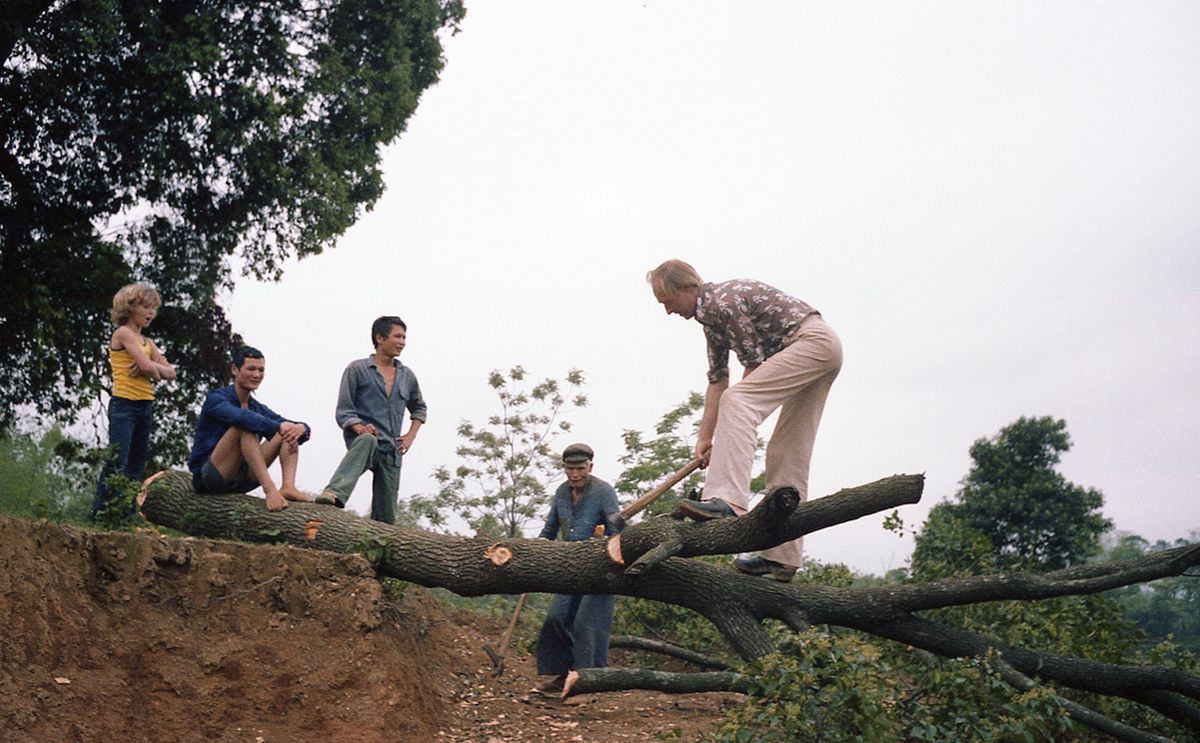
Swedish experts with residents of Phú Thọ. Photo via VnExpress.
Is ‘Happy New Year’ actually about a happy new year?
Perhaps, due to Vietnam’s fondness for the four Swedes and their previous hits, when ‘Happy New Year’ was introduced in 1980, the song swiftly resonated not only with their young fans but also with the general public.
A writer recalling memories of Tết during the subsidy era recalls seeing people play this song on cassette tapes on the streets of Hanoi on the first day of Lunar New Year like a newfound tradition, akin to giving lucky money or setting off fireworks. “The kids back then didn't really know what ‘Happy New Year’ was about, but they still found the song oddly heartwarming,” she wrote.
Vũ Thị Xuân, a business owner born and raised in Hanoi, now 70 years old, also nostalgically shared with VnExpress: “Every time I hear that song, I can feel the lively atmosphere of spring. [...] Although, to be honest, I don't understand the lyrics of this song at all.”
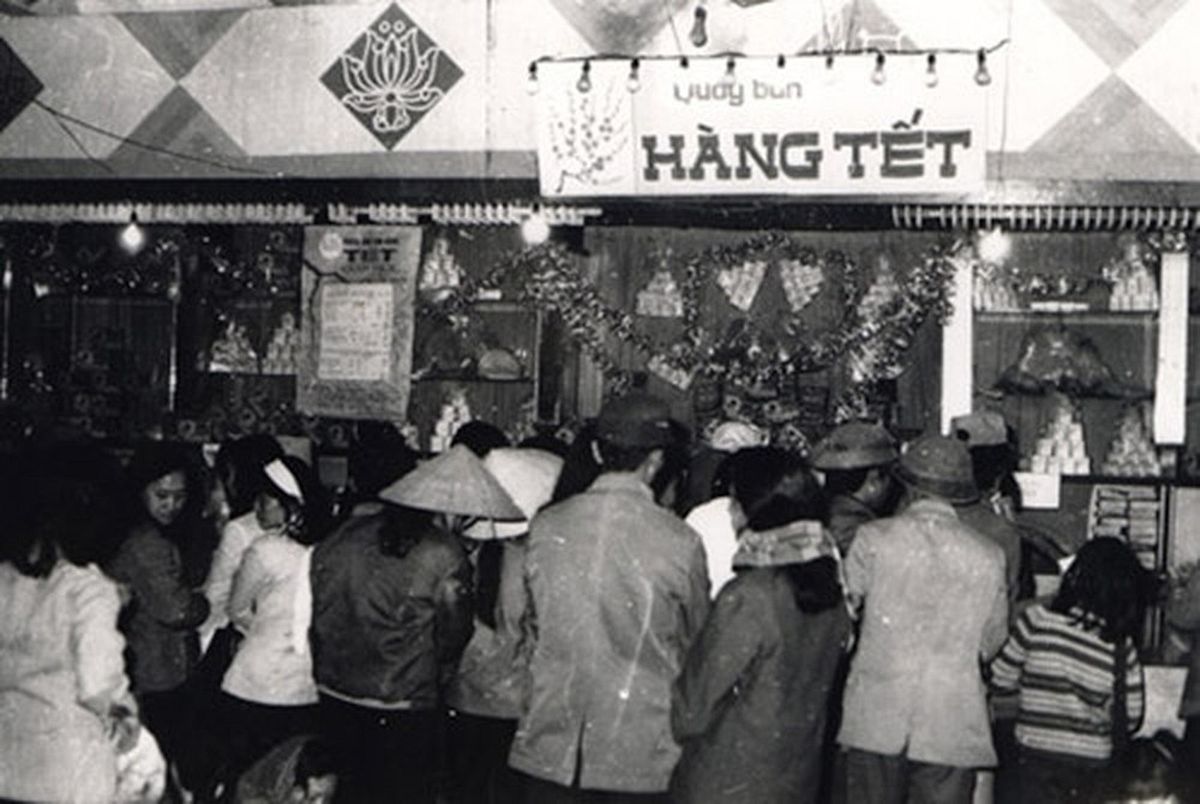
Tết during the subsidy era. Photo via Môi trường & Cuộc sống.
But why is it that only Vietnam seems to love ‘Happy New Year’ so much, and not the European countries where ABBA was essentially pop royalty? The answer has been provided above: because, when the song came out, not many in Vietnam could understand the lyrics.
‘Happy New Year’ came out amid the personal turmoils of ABBA members. In 1979, Fältsko and Ulvaeus announced their divorce, though they continued to work together. Soon after, Andersson and Lyngstad also split, leading to the foursome's eventual disbandment in 1982. Alongside ABBA’s struggles, the world was experiencing a period of turbulence due to international conflicts including the Cold War and the Islamic Revolution in the Middle East, etc. The song aptly encapsulates the nauseating anxiety that both the artists and the global community were weathering. It's a lamentation for fractured relationships as well as the uncertainty of entering a new decade amidst social unrest.
No more champagne
And the fireworks are through
Here we are, me and you
Feeling lost and feeling blue
Clearly, with such a gloomy mood, the song isn't a favorite among English-speaking listeners on New Year's Eve. In recent years, there have also been suggestions in Vietnam to refrain from listening to ‘Happy New Year’ and instead embrace more cheerful Vietnamese-language songs, as the somber lyrics of the song are deemed too ominous for Vietnam’s new year celebration, which always focuses on projecting an auspicious and positive outlook.
However, in some way, ‘Happy New Year’ turned out to be the perfect song for Vietnam at that time.
It's the end of a decade
In another ten years time
Who can say what we'll find
What lies waiting down the line
In the end of eighty-nine...
Even though it is filled with melancholic undertones, ‘Happy New Year’ still concludes with a glimmer of hope — a belief that beyond grief and tribulations, better things are waiting for us. The message reflects the anxiety of Vietnam’s society and people in the post-war years when facing the challenges of a young and impoverished nation. Amidst a future shrouded in uncertainty, they still clung to hope as they stepped into a new year, a new decade, and a brave new world.
On the occasion of Tết in 2019, as a tribute to the friendship between the two nations, the Swedish Ambassador performed a Vietnamese version of ‘Happy New Year’ with lyrics that couldn't be more different from the original:
Xin chúc cho mọi nhà cùng người thân hân hoan đón xuân / Wishing everybody and their loved ones a joyous spring
Năm cũ đi, năm mới sang, đón thêm bao tin vui nơi nơi / The old year fades away, the new year arrives, bringing more good news
Chào năm mới trong gió xuân an lành, rộn ràng bao câu ca thắm tươi / Welcome the new year with gentle breezes and cheerful songs
Ai cũng vui bên gia đình, chúc năm nay an khang mọi nhà / Homes filled with happiness, wishing for peace and prosperity
Nevertheless, this rendition still garnered positive feedback with thousands of likes and comments, praising the ambassador for his “heartwarming” gesture — embracing the “tradition” that his country itself had introduced. No one pointed out the distinction between the original version and this adaptation, as perhaps in the minds of the majority of Vietnamese people, this has always been the message that ‘Happy New Year’ embodies: a genuinely happy new year.
In the end, every work of art lives in two realms — one in the artist's intention and one in how the audience perceives it. Those who dislike ‘Happy New Year’ can perhaps consider ‘Dancing Queen’ for a livelier, spring-like alternative. As for those who love it? Why bother going cold turkey on a song that's depressing to the core if it brings you joy anyway? The next time you find yourself humming this melody under the dazzling fireworks, your heart filled with a profound sense of hope, send a message of gratitude to ABBA for gifting Vietnamese with a song for the ages: “Thank you for the music, For giving it to me.”

